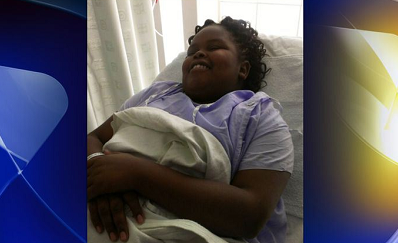For the past several weeks, the media has passionately covered the tragic story of 13-year-old Jahi McMath, who was diagnosed as brain dead on Dec. 12, after going into cardiac arrest amid a tonsillectomy. The media and the public were attached to the story like velcro for obvious reasons: a mother and family fighting for a daughter’s life against all odds.
But at the core of this national story is a dual of opinion; one being multiple doctors declaring McMath as brain dead with no hope of return, and the other from the teenager’s family and attorney, Christopher Dolan, who adamantly believe she will recover.
It’s now been over a month since McMath’s brain dead diagnosis and her condition has not changed one bit, despite being transported from the Children’s Hospital of Oakland over a week ago. From a medical perspective, McMath has literally been dead for over a month, yet the media’s coverage of the family’s optimism has kept the idea of McMath’s recovery alive. But just how optimistic (or realistic) should the public be?
While a previous news report quoted Dolan declaring that doctors were “optimistic that her condition has stabilized,” just how promising is that? What exactly is a stabilized version of non-brain activity?
The reality is that “brain death” is defined as an irreversible end of brain activity, including involuntary activity necessary to sustain life, and is commonly confused with a “vegetative state,” which is a state of consciousness that has been met with many success stories of recovery. However the two are very different conditions. Biologically, there is no coming back from brain death. The fantasy that McMath will magically awake like some dramatic soap opera is not fair to the public, but more importantly McMath’s family. From a religious point of view, miracles are most certainly embraced, however, it may just be time for the McMath family to come to terms with reality, which is backed up with overwhelming facts.
The public’s reaction to the Jahi McMath story is understandable. The unexpected and tragic death of a child would pull at anyone’s heartstrings. So far, the McMath family has collected over $60,000 in donations and garnered many prayers across the country, but it seems as if time is running its course.
No one is in any position to ask the McMath’s to relinquish their beliefs, for that is their right, but when it comes to discrediting the integrity of the medical community and the media exhausting the public with inundated headlines, maybe it’s time to come to grips with this tragic saga. While the thought of a child losing her life is one that is most certainly heartbreaking, the truth is that she’s been gone for quite some time, and at this point it doesn’t seem fair to McMath to continue this game of medical charades, where we pretty much already know the outcome.
While the McMath’s are looking for a miracle, what they really need is love and support.

God always works in ways we don't understand. Let His will be done.
ReplyDeleteAmen.
ReplyDelete